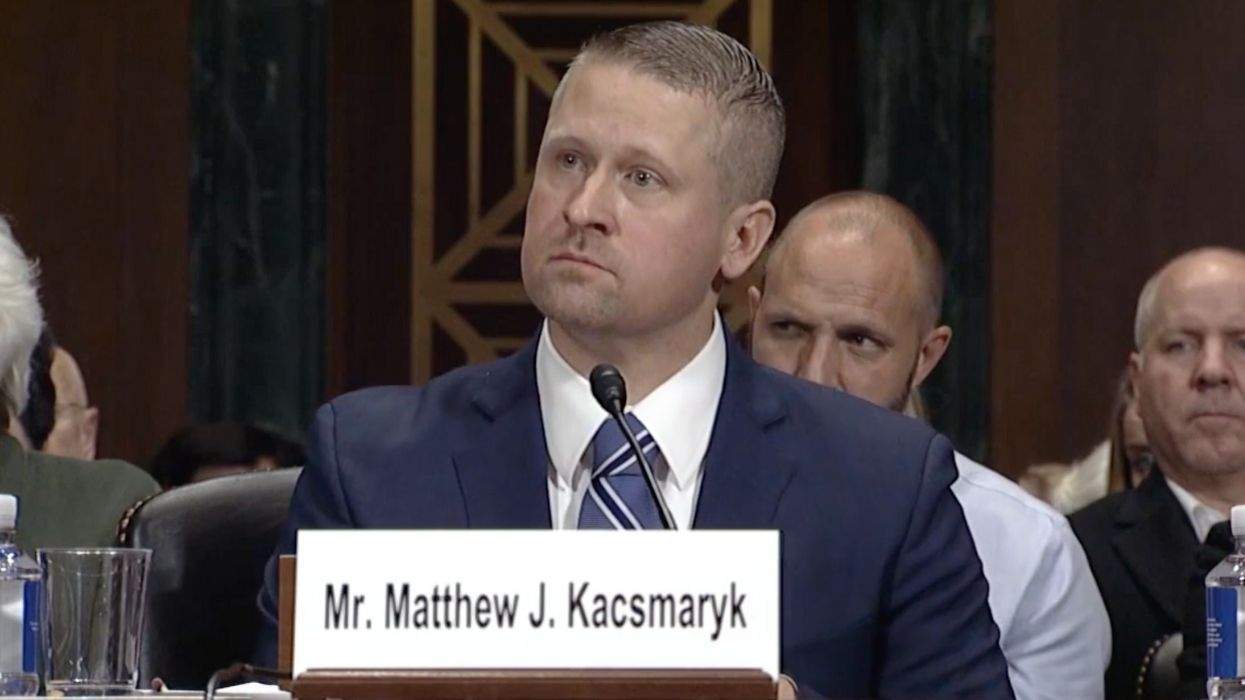A federal court has invalidated Tennessee's law requiring businesses to post warning signs if they let transgender customers use the restrooms and other single-sex facilities matching their gender identity.
The law violates the guarantee of free speech under the First Amendment to the U.S. Constitution because it forces citizens to engage in speech they disagree with, U.S. District Judge Aleta A. Trauger ruled Tuesday.
"It would do a disservice to the First Amendment to judge the Act for anything other than what it is: a brazen attempt to single out trans-inclusive establishments and force them to parrot a message that they reasonably believe would sow fear and misunderstanding about the very transgender Tennesseans whom those establishments are trying to provide with some semblance of a safe and welcoming environment," Trauger wrote.
The law was passed last year, and in July, Trauger issued a temporary injunction against it, blocking its enforcement. Her new decision blocks it permanently unless the ruling is overturned on appeal.
She granted summary judgment -- a ruling without a full trial -- in a lawsuit against the state brought by a restaurant owner represented by the American Civil Liberties Union. "If the law had gone into effect," an ACLU press release notes, any business that allowed transgender and intersex people to use the restroom that most aligns with who they are would be forced to post signs with the word 'NOTICE' in yellow on a red background at the top, followed by text stating, 'THIS FACILITY MAINTAINS A POLICY OF ALLOWING THE USE OF RESTROOMS BY EITHER BIOLOGICAL SEX, REGARDLESS OF THE DESIGNATION ON THE RESTROOM,' or face criminal charges."
In her ruling, Trauger wrote, "The defendants argue that Tennessee's law is nothing but a harmless, content-neutral rule directed at clarifying restroom signage, not a public jab at transgender Tennesseans or an endorsement of a particular vision of how gender identity should be understood. Even a cursory examination of the facts, however, reveals that the government's defense of the law is, at best, a thin and unconvincing veneer applied to a law that does exactly what the plaintiffs say it does. ... It forces them to endorse an inaccurate version of those policies that does not appear to exist much of anywhere outside of the imaginations of people who oppose the recognition of transgender identities altogether."
"The clear implication of the required signage is that the regulated establishment permits any person to use any restroom -- despite the fact that that is not actually what a trans-inclusive policy would necessarily entail," she explained. "A business can allow a transgender man to use a men's restroom without opening that restroom to everyone."
Examples given by from the plaintiffs and an expert witness "illustrate the struggles that transgender individuals have faced in American society, while "the legislative history of the Act itself provides a number of examples of the kind of fear and derision that transgender individuals face," Trauger added. She noted that opponents of trans-inclusive restroom policies often cite "an exaggerated specter of danger in public restrooms."
She further noted, "Transgender Tennesseans are real. The businesses and establishments that wish to welcome them are real. And the viewpoints that those individuals and businesses hold are real, even if they differ from the views of some legislators or government officials."
The ACLU praised the decision. "We applaud the court for recognizing that this law violates the First Amendment and harms transgender people," Hedy Weinberg, ACLU of Tennessee executive director, said in the press release. "Transgender individuals should be able to live their lives free of harassment and discrimination. [Tuesday's] decision ensures that the businesses who welcome them are not forced to become instruments for politicians' discrimination."
"As a former journalist, I believe strongly in free speech," added Bob Bernstein, the restaurant owner who brought the suit. "The government can't just force people to post discriminatory, inaccurate, and divisive signs in their places of business. I am glad that the court recognized that this law violates the First Amendment."
Several news outlets have sought comment from state officials, including Gov. Bill Lee, but so far there has been no public statement from them. Lee was named as a defendant in the lawsuit, along with two district attorneys, the state fire marshal, and its director of code enforcement.
Earlier this month, Lee signed legislation preventing trans women from competing on college athletic teams that match their gender identity. The new law builds on existing laws that bar trans women and girls from participating on high school sports teams that align with their gender.















Charlie Kirk DID say stoning gay people was the 'perfect law' — and these other heinous quotes
These are some of his worst comments about LGBTQ+ people made by Charlie Kirk.